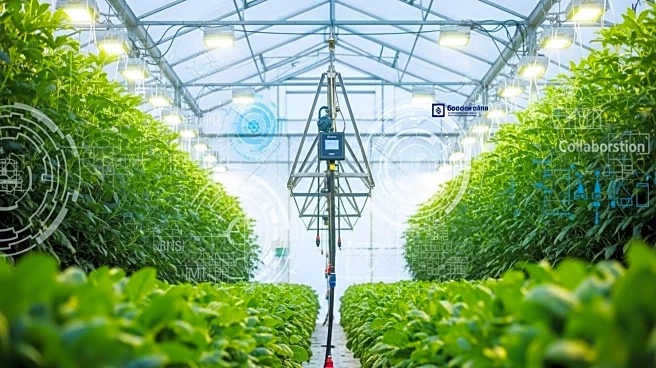What is the story about?
What's Happening?
Corteva and Bayer have announced new partnerships in the AgriFoodTech sector, focusing on gene editing tools and sustainable farming practices. Corteva has partnered with Profluent Bio to develop advanced gene editing technologies, while Bayer has teamed up with Cornfed Farms to establish the first ForwardFarm in the Midwest. These collaborations aim to enhance agricultural productivity and sustainability. Additionally, Air New Zealand has invested in nature-based carbon credits, reflecting a growing trend towards environmental responsibility in the industry. The European Parliament has backed a ban on labeling plant-based meats with terms traditionally associated with animal products, such as 'steak' and 'burger'. This decision could impact marketing strategies for plant-based food companies. Meanwhile, Tyson and Cargill are set to pay $87.5 million in a beef price-fixing settlement, highlighting ongoing legal challenges in the meat industry.
Why It's Important?
These developments are significant for the AgriFoodTech sector as they represent a shift towards more sustainable and innovative agricultural practices. The partnerships between major companies like Corteva and Bayer could lead to advancements in gene editing, potentially increasing crop yields and reducing environmental impact. The investment by Air New Zealand in carbon credits underscores the importance of sustainability in corporate strategies. The European Parliament's decision on plant-based meat labeling may influence consumer perceptions and industry marketing approaches. The settlement involving Tyson and Cargill highlights the legal and ethical challenges faced by the meat industry, which could lead to increased scrutiny and regulatory changes.
What's Next?
The partnerships announced by Corteva and Bayer are expected to drive innovation in gene editing and sustainable farming practices. Companies in the AgriFoodTech sector may need to adapt to new regulations and consumer preferences, particularly in light of the European Parliament's decision on plant-based meat labeling. The settlement involving Tyson and Cargill could prompt further investigations into pricing practices within the meat industry, potentially leading to more stringent regulations. As sustainability becomes a key focus, companies may increase investments in carbon credits and other environmental initiatives.
Beyond the Headlines
The shift towards sustainable practices in the AgriFoodTech sector could have long-term implications for food security and environmental health. Innovations in gene editing and sustainable farming may contribute to more resilient agricultural systems, capable of withstanding climate change impacts. The legal challenges faced by the meat industry could lead to increased transparency and ethical considerations in business operations. The evolving consumer preferences for plant-based foods may drive further innovation and diversification in product offerings.














